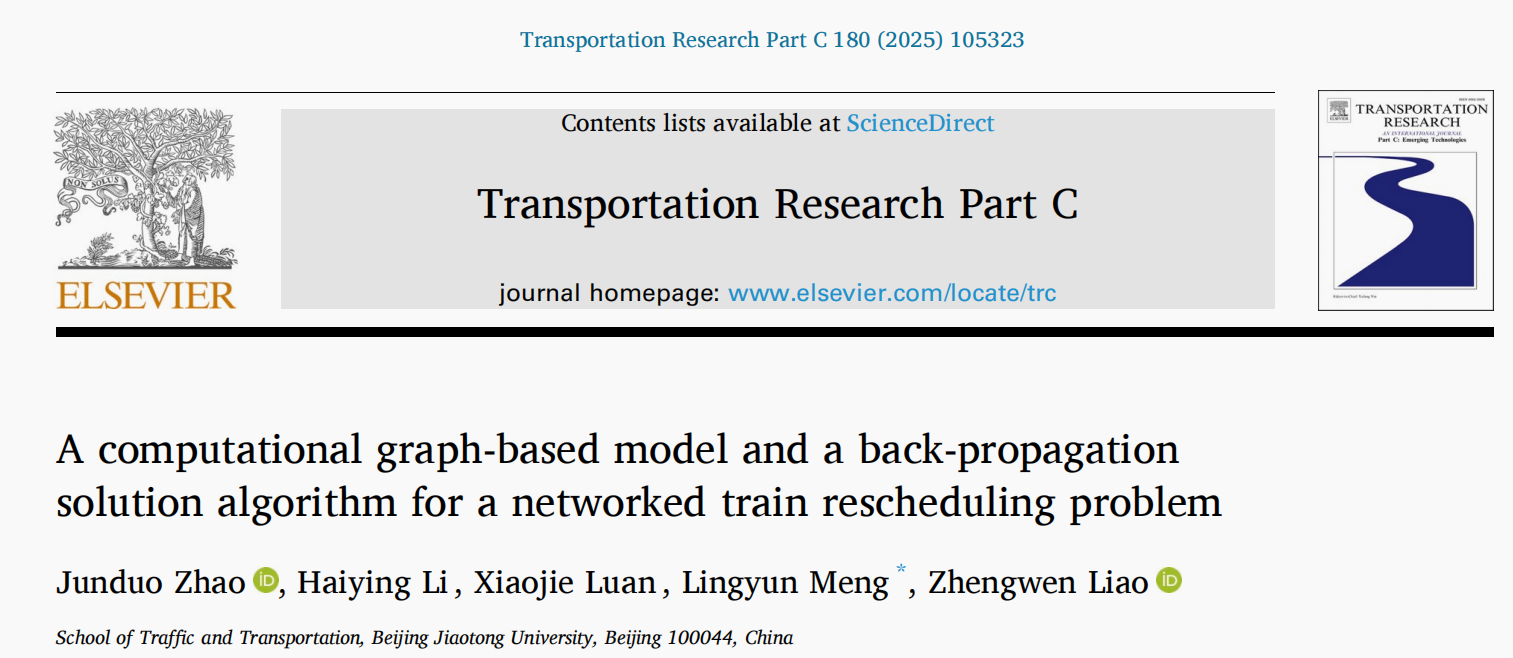
Abstract
Real-time train rescheduling is of more significant requirements on both the computation time
and solution performance compared to offline scheduling. The motivation for this study is to
develop an efficient and effective method to reschedule disrupted trains in the context of severe
disruptions, e.g., a four-hour segment blockage. A novel computational graph (CG)-based model
is proposed to provide a continuous representation of the problem, wherein the discrete “if-then”decision-making process is transformed into continuous numerical computations that can be
efficiently addressed. A customized back-propagation (BP) algorithm is developed to refine the
solutions through an iterative process that includes a forward calculation of the objective function
and a backward derivation of the decision variables. Owing to these computationally efficient
processes, our proposed methodology can effectively handle the increasing complexity arising
from detailed mesoscopic-level formulations in large-scale instances. We conduct experiments on
both a small hypothetical network and the real-world Chinese high-speed railway network to
validate the effectiveness and efficiency of our method. We also perform experimental analysis to
examine the appropriate parameter settings for improved system performance.
Keywords
High-speed railway network
Train rescheduling
Computational graph (CG)
Back-propagation (BP)
Severe disruption
Highlights
• Computational efficiency is critical for real-time train rescheduling.
•Converting if-then decisions into computations can accelerate the solution process.
•
The computational graph model performs well in transforming if-then decisions.
•
The back-propagation algorithm guides solution refinement via partial derivatives.
•
The method achieves dramatic computational speedups in solving large-scale problems.
原文传递: https://doi.org/10.1016/j.trc.2025.105323



